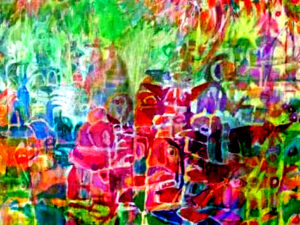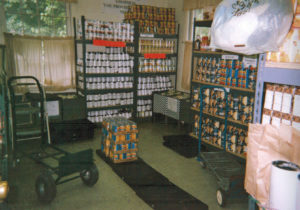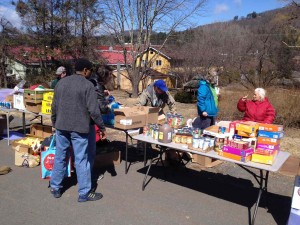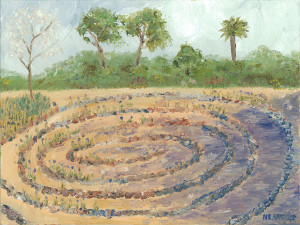Politicians – the Season Begins Again!
The political season begins again. In Woodstock, the politicians come calling. They knock on the door – their smiles open, their outfits perfect.
And, they don’t want to hear any questions – not from me, anyway.
I answer the door and listen to their message. I’m waiting to pounce, really. Because, I know they don’t know anything about hunger in our area.
And, I do know about hunger in our area.
The minute I open my mouth, they start to run for it.
Well, not so fast politician. Not so fast. You can’t leave my front door without taking a copy of one of my books with you.
I really know more about the economics of this area than they know. I know about children who go to school hungry. I know about families who routinely choose between food and transportation, food and housing, food and healthcare.
The politicians know their dance is up for today. Because I know about homelessness. I know the difference between shelter and housing.
Woodstock is a community where people working here come from somewhere else.
Each year, I figure that some kind of message will go out and no politicians will knock on my door. I’m wrong every year.
So, I sit – waiting to pounce.
Lord, I apologize. I simply can’t help myself. Someday, I’m going to apologize and know its the last time because I won’t act this way next time. I’d be lying to you now, Lord, if I even pretended that I won’t do it again.
I love pouncing on these people who knock on the door. I love to tell everyone how hard it is for the elderly to get food when their shoulders and knees don’t work anymore. I love to talk about friends I have who don’t drive anymore and who live in a food desert.
Lord, as seniors, we routinely pay more, get less, and do without. The without part comes because we’re outliving our savings.
I feel like everyone needs to know these things. How are the politicians going to know about them if I don’t tell them? I’ve convinced myself that its part of my job as a food pantry volunteer.
Food pantries are mostly hidden services. People shopping at one certainly don’t tell anyone where they get their groceries. And, the volunteers don’t talk either.
In the beginning, I was bothered about this but I’ve come to realize that food pantries are places where miracles happen. And, miracles are much easier if no one knows about them.
Lord, on behalf of everyone who shops or volunteers at a food pantry, I offer gratitude for the many miracles You perform on our pantry day.
And, Lord, thanks for sending these politicians over to my house every voting season. I love to pounce and then send them away with my books.
Thank you again Lord. I offer gratitude on behalf of everyone who shops or volunteers at a food pantry.
Amen
Thanks for reading this article! If you enjoyed it, check out some of the older articles. Hunger is not a Disease is an fascinating story about hunger in a small town food pantry. This blog has been relating stories and events for ten years!
I’m amazed when I read this. I never, in my wildest dreams, thought I would be writing about hunger and homelessness for over 10 years. And yet, here I am, plugging away!
What a journey this blog has been – and continues to be.
What was I thinking?
Please share this article with your friends and family. Forward it to your preferred social media network and post it on Facebook even.
Check out my books on www.thurmangreco.com. The website is being repaired so contact me at thurmangro@gmail.com to purchase one or more of the books.
Let’s Live with Thurman Greco is a program aired weekly on Woodstock’s own educational TV channel 23. This show is an informative, upbeat hour with no rehearsals. Some segments support the blog information and highlight Reiki Therapy, Hand and Food Reflexology, and other wellness subjects.
Guests are various people whose lives have brought them to Woodstock for a day, a week, an hour, a decade, or more. I can truthfully boast that guests report they enjoy the experience.
Let’s Live has been running for over 15 years with an occasional intermission now and then.
Enjoy interesting and fun programs while getting a peek into Woodstockers being themselves. Search “Let’s Live with Thurman Greco” on YOUTUBE and check out the ever growing list of videos.
Please contact me at thurmangreco@gmail with comments or questions.
This Thanksgiving – A Blessing of Opportunity
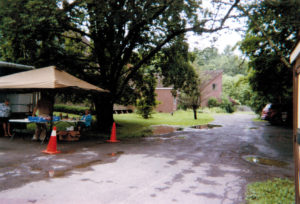
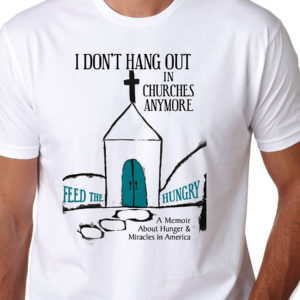
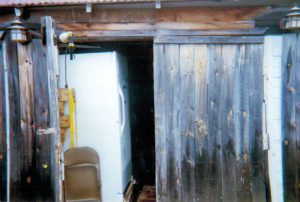
This Thanksgiving I’m grateful for the clothes on my back.
This Thanksgiving I’m grateful for my health.
This Thanksgiving I’m grateful for food which is available to me and to those who rely on the resources and generosity of others for the basic necessities we need to continue our lives.
The available food reminds me that we all live in the abundance of this time and place.
Thanksgiving, for me, is an opportunity to welcome the coming new year: hope and new beginnings arrive in January. The energy of this Thanksgiving gives me strength to gather energy for that prayer.
I’m holding on to the healing, wellness, and regeneration we will all experience as the Pandemic finally moves on.
I’m waiting for the blessings which will come my way as the Pandemic exits and leaves space for the new reality we will experience in its place.
And, I have to admit, I’m excited to experience our new reality. In my heart of hearts, I feel we’re never going back. We’re going forward, instead, to something new and different and better.
I’m grateful to be here, to be connected to all the efforts of the many people working for those who need food and housing. I appreciate the support I continue to receive from people I’ve come to know in this world.
This Thanksgiving I’m grateful for you. I feel a kinship in your readership so that, in my search to spread the word about hunger in our country, I know that I am never alone.
Thank You.
Please forward this article to your preferred social media network.
Thurman Greco
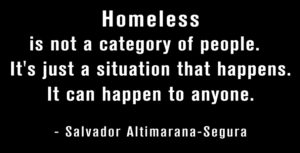
No Fixed Address

“No Fixed Address” is dedicated to those in our country with no roof over their heads. See your neighbors, your friends, your relatives, in new ways as they describe their daily lives in their own words.
The people in this new book reveal themselves to be both brave and fearless as they go about their activities: work, laundry, children’s homework, appointments. Mostly they live like the rest of us. They just have no roof over their heads.
“No Fixed Address” is my newest book in the Unworthy Hungry series. It’s easy to read and understand. You won’t be bored, not even for a minute.
I hope you’ll order it today. Get an extra copy for a friend!
This book has an extra surprise. When you get a copy, you’ll be making a donation to a good cause. You’ll be fighting hunger and homelessness.
It doesn’t get much better than that!
Thank you for reading this article!
Please forward it to your preferred social media network.
Thurman Greco


What I Believe – Seniors in a Food Pantry
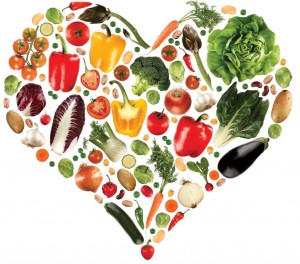
As seniors age, the courage we experience becomes more obvious as we feed hungry people. After all, what does a senior have to lose? Courage is a necessary part of the aging personality because our platform continually shrinks.
We’re often overlooked in the homeless arena. Those looking out forhomeless people focus on an older adolescent (especially if there’s an infant involved), and families. There’s just not much energy left over for hungry people seniors and cocker spaniels.
It never occurred to me that turning away hungry people in the pantry line was something I would do. Or could do. Or even consider doing. Turning away hungry people was not an option.
I came to the pantry as a crone or harridan depending on the circumstances and a person’s attitude toward me and my attitude toward hunger. I brought already formed opinions and beliefs, many of which were with me at birth.
Some argue that people are born as blank slates. I can’t agree. For one thing, I never experienced a blank slate when it came to hungry people. I didn’t have an “aha” moment when I met my first hungry person. I didn’t examine the value of feeding hungry people in a philosophy or government class. I never, at any time, analyzed the concept of feeding the hungry.
Because I lived my opinions about hunger, and because I got up close and personal with hungry people in Mexico and Venezuela, I was comfortable with the concept of feeding hungry people.
I never even considered not feeding hungry people I the food pantry. When I saw them, I remembered moments in Mexico and Venezuela and realized hunger is an intensely personal situation accompanying malnourishment. Hunger can lead to starvation.
Hungry people needing food are voiceless. Even though it’s harder on those with mental and emotional issues, it impacts everyone spiritually.
As they distribute pantry food, volunteers reduce costs in other areas of government: healthcare, housing, education.
A long-term poor diet contributes to illness which poor people can’t afford. Healthcare costs get shuffled over to taxpayers. When forced to choose between housing and food, the hungry often opt for housing. Later, if they can’t pay the housing costs and end up homeless. This results in further tax bills.
When school children are too hungry to learn, the damage is long term. They risk becoming uneducated adults unable to qualify for employment. Our problems flow to the next generation and the future.
DANA
“Hi, Dana. Come on in and shop. How’re you doing this week?”
“Fred’s still in the hospital. He’s been diagnosed with kidney disease and he’ll be on a special diet when he comes home.”
“I’m sorry to hear that.”
“I’m so glad you sent me to Dr. Longmore. He told me exactly who to go see, what paperwork to get, everything I needed to get care for him. I hope Fred’s coming home soon.”
“Dana, I’m so happy to hear this.”
“Thank God the pantry has all these fresh fruits and vegetables. By the way, do you have any laundry soap today?”
“I wish!”
I met Dana the first morning I worked in the pantry and she shared her adventures with me every week from that pantry day on. Of all the people going through the line in the pantry, I probably learned more about her than anyone else.
I never learned where she lived, how many children she had, where she came from or anything like that. What I learned from her was a running commentary of present tense food insecurity. She shared her daily struggle as she traveled through life trying to keep a roof over her head, clothes on her back, and food in her refrigerator.
Walking through the line weekly, she shared her life with me. I learned how she found a coat for the winter when the old one wore out and she had no money.
“Dana, your coat is beautiful!” It’s going to keep you so warm!”
“Yes, it is, isn’t it? You should have seen it when I found it. It was filthy!” I couldn’t even tell what color it was. I took it home, put it in the tub and worked on it all afternoon ’til I cleaned it up. Now look at it. It’s a perfect fit!”
I learned how she struggled to keep her car going…and then finally gave it up.
“The bus is working out real well over here. I catch it about two blocks from my apartment in Saugerties and ride it over. I wait in the hall ’til it comes back to take me home. I only have to carry my groceries about five blocks in all! I’m so lucky I found this bus. I get to ride free because I’m a senior!”
Dana was the most confirmed optimist shopper in the line. And, when Dana was in the line, I was the most confirmed optimist pantry volunteer in the place.
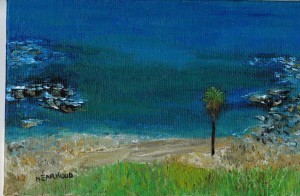
Thank you for reading this article! Please refer it to your preferred social media network.
Thurman Greco
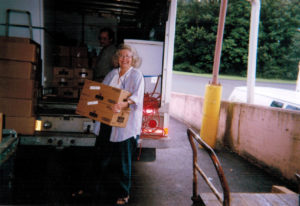

Preventing Senior Hunger
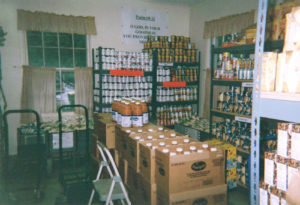
For years, I’ve been blogging and writing books about hunger in America in general and senior hunger specifically.
Senior hunger is not going away anytime soon.
If you read my blog posts, then you are probably interested in senior hunger. Recently I came across a guide which you will want to read.
To learn more about senior hunger, access it here: https://onlinegrad.baylor.edu/resources/seniors-food-insecurity-hunger/
Thanks for reading this article and thanks for your interest and action.
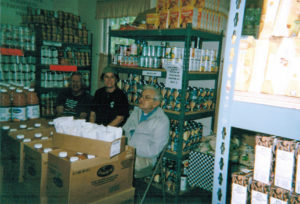
I hope you’ll not only read this article but will also share it wherever you feel it might be appropriate.
This new resource may be of interest to readers everywhere. The goal is to help open a dialogue in our country about senior hunger.
Thank you for your time and thank you for your concern about seniors and hunger.
Thurman Greco


Please share this post with your preferred social media network.
